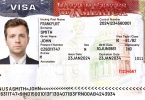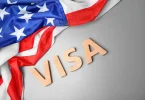The H-1B visa continues to be a top choice for skilled professionals aiming to advance their careers in the United States, offering foreign workers a chance to contribute to the U.S. economy while gaining invaluable experience in their fields. Additionally, the H-4 visa provides an opportunity for family members of H-1B visa holders to join them in the U.S., making it easier to maintain family unity while pursuing career goals.
Understanding the H-1B and H-4 Visas
The H-1B visa is specifically designed for U.S. businesses looking to hire foreign workers in specialized occupations that require a bachelor’s degree or higher in a field directly related to the job. This visa is highly sought after due to its ability to connect global talent with opportunities in the U.S.
According to U.S. Citizenship and Immigration Services (USCIS), the H-1B visa is initially valid for up to three years and can be extended for an additional three years, providing a total of six years of potential stay. This extended period allows visa holders to build a robust professional presence in the U.S., often leading to long-term career growth.
Apply Also: Top 8 E-commerce Jobs to Consider
The H-1B classification isn’t limited to just traditional professional roles. It also covers individuals working on Department of Defense cooperative research and development projects or co-production projects, as well as those providing services in fashion modeling with distinguished merit and ability. This wide range of applicable professions makes the H-1B visa versatile and beneficial for various industries.
For family members, the H-4 visa is available to the dependents of H-1B visa holders, including spouses and unmarried children under 21. While the H-4 visa does not automatically grant work authorization to the spouse, it does provide a pathway to obtaining it. USCIS states that H-4 visa holders are eligible for work authorization if the H-1B visa holder is the principal beneficiary of an approved Form I-140 (Immigrant Petition for Alien Workers) or has been granted H-1B status under sections 106(a) and (b) of the American Competitiveness in the Twenty-First Century Act (AC21).
Apply Also: How to Get Cleaning Jobs in the USA With Visa Sponsorship
Key Insights on H-1B and H-4 Visa Applications
H-1B Visa:
- Employer Requirements: To apply for an H-1B visa, the employer must ensure that the job position qualifies as a specialized occupation, requiring at least a bachelor’s degree or its equivalent. The employer must also file a Labor Condition Application (LCA) with the U.S. Department of Labor. This LCA certifies that the wage offered meets prevailing standards and confirms that hiring a foreign worker will not negatively impact the wages and working conditions of U.S. workers.
- Employee Qualifications: The prospective employee must possess a bachelor’s degree or higher in a field related to the specialized occupation. Their education and experience should align with the job requirements, and they must have a valid job offer from a U.S. employer for a position that qualifies under the H-1B visa criteria.
- Lottery System: Since the H-1B visa is subject to an annual cap, a lottery system is used to select applicants. This cap limits the number of visas that can be granted each year, making the process highly competitive.
Apply Also: How to Become an Immigration Lawyer in USA
H-4 Visa:
- Family Documentation: To be eligible for an H-4 visa, applicants must provide evidence of their relationship to the H-1B visa holder, such as a marriage certificate for the spouse and birth certificates for the children. The H-1B visa holder’s status must be valid at the time of application.
- Work Authorization for Spouses: For H-4 visa holders who wish to work, obtaining an Employment Authorization Document (EAD) is essential. To request work authorization, H-4 visa holders must file Form I-765, Application for Employment Authorization, with USCIS. It’s crucial to use the most recent version of the form and include all required supporting evidence to avoid delays.
Application Process for H-1B and H-4 Visas
The process of applying for H-1B and H-4 visas involves two main parts:
- H-1B Visa Application:
- Employer’s Role: The process begins with the employer, who must secure a sponsoring employer willing to file the necessary paperwork on behalf of the employee. This includes filing the LCA and registering the employee in the H-1B lottery system during the registration period, typically starting in March of each year. If selected in the lottery, the employer must then file Form I-129, Petition for a Nonimmigrant Worker, with USCIS. This petition should include all required documentation to support the case.
- USCIS Review: Once the petition is submitted, USCIS will review it and, if approved, issue a Notice of Action (Form I-797), indicating that the application has been accepted.
- H-4 Visa Application:
- Dependent’s Role: Dependents of the H-1B visa holder must gather all necessary documents, including passports, DS-160 forms, marriage and birth certificates, and the H-1B approval notice. They must also pay a non-immigrant visa application fee before scheduling interviews at the U.S. embassy or consulate. If approved, the H-4 visas will be stamped on the dependents’ passports, allowing them to join the H-1B visa holder in the U.S.
Employment for H-4 Visa Holders
H-4 visa holders who wish to work in the U.S. must obtain an Employment Authorization Document (EAD) by filing Form I-765. USCIS advises that applicants ensure they use the most current version of the form and provide all required supporting documentation to avoid delays or requests for additional evidence. Providing sufficient evidence upfront reduces the likelihood of delays and ensures a smoother application process.
Additional Considerations
It’s important to note that the H-1B visa program is subject to an annual cap, meaning there is a limit on the number of visas that can be issued each year. Once this limit is reached, no more visas can be granted for that year, and remaining applications will be held in the queue for the following year. This cap adds a layer of complexity and urgency to the application process, making it essential to apply early and ensure all requirements are met.
For those seeking to navigate the complexities of the H-1B and H-4 visa processes, consulting with an experienced immigration attorney is highly recommended. An attorney can provide guidance on the latest USCIS guidelines, help avoid common pitfalls, and ensure accurate and timely processing of your visa applications. Additionally, premium processing is available for H-1B visas for an additional fee, which can expedite the review process.
Other Jobs in USA
Conclusion
The H-1B visa offers a valuable opportunity for foreign professionals to advance their careers in the U.S., while the H-4 visa allows family members to join them, creating a pathway for both professional and personal growth. By understanding the requirements and processes involved, applicants can increase their chances of success and make the most of this opportunity.






